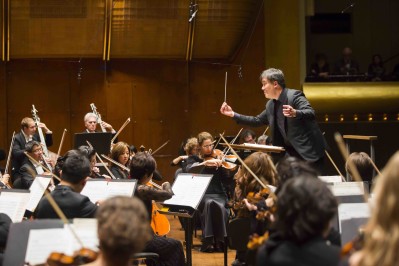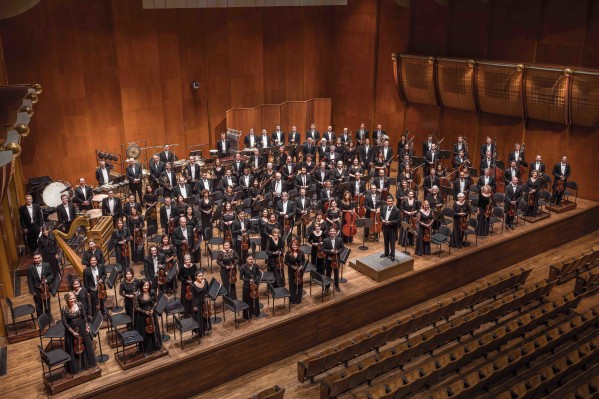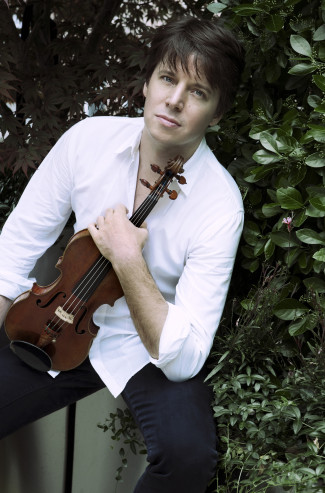REVIEW: NY Philharmonic celebrates Sibelius’ 150th anniversary

NEW YORK — Amid the week when New Year festivities lit up Times Square, the New York Philharmonic mined the artistic music of Jean Sibelius, who was born 150 years ago. The program included “The Swan of Tuonela, Op. 22, No. 2” from Sibelius’ Lemminkäinen Suite, the composer’s fourth symphony and his popular “Finlandia, Op. 26, No. 7.” Sandwiched in between the Finnish masterworks was Felix Mendelssohn’s “Concerto in E minor for Violin and Orchestra, Op. 64” with world-famous Joshua Bell offering his stringed excellence on the violin.
The full program, which ran more than two hours, felt slightly varied and pulled in too many directions. However, the Philharmonic, under the expert conductorship of Alan Gilbert, was able to find a beautifully realized pacing and offer an expert interpretation that helped bring Sibelius and Mendelssohn’s pieces to life.
Gilbert even took to the microphone between the compositions to explain a bit about Sibelius’ career and the challenging aspect of playing the composer’s fourth symphony. Quite surprisingly, Gilbert previewed the performance and its movements, telling the sold-out crowd what to listen for and expect. The helpful notes only enriched the symphony, which is an unusually transfixing piece.

Helpful Playbill notes pointed out that Sibelius was going through a dark period in his life when he crafted his fourth symphony, and perhaps these influences had a great impact on his compositions of the time. The piece is apparently the “toughest to crack, uncompromising in its austerity and enigmatic in its emotional stance.” These words are true of the 40-minute piece. It’s a discordant, sometimes perplexing symphony broken into four movements that seem disconnected and borne from differing viewpoints. However, as played by the Philharmonic, with an impressive interpretation of the strings section, the piece worked by embracing its unconventionality.
The opening of the program included “The Swan of Tuonela,” a quick, spirited piece of Sibelius’ that is based on folkloric stories. The strings shined throughout the piece, plus the work of the basses.

“Finlandia” finished the concert and the Sibelius section, and this triumphant piece, running approximately 10 minutes, was the highlight of the Finnish offerings. It was loud and epic, energetic and rousing, a nationalistic piece to send off the audience with memories of the unique contributions of this talented composer.
Not to be outdone, Bell and company were able to anchor the performance with their interpretation of Mendelssohn’s “Concerto in E minor for Violin and Orchestra, Op. 64.” The cadenza, written by Bell himself, was performed with skillful gusto and careful precision, providing obvious evidence of the violinist’s deserved international fame. He has a unique way of matching his playing with the mighty orchestra at his back; the two become one symbiotic power, and the concerto, and our ears, were the beneficiaries.
The full program didn’t work seamlessly, and it did sometimes feel like the concert was four mini concerts brought into one evening. But the program gave the audience a chance to hear rare works — rare for the New York Philharmonic at least — from a Finnish composer who is going through quite the celebratory anniversary this past year and an expert violinist unleash his artistry on a piece both challenging and beloved by appreciators of classical music. It was an evening filled with variance and verve.
By John Soltes / Publisher / John@HollywoodSoapbox.com
- Alan Gilbert and the New York Philharmonic, with Joshua Bell as soloist, offered the Jean Sibelius / Felix Mendelssohn program Dec. 29 (open rehearsal), Dec. 30 and Jan. 2. Click here for more information.

